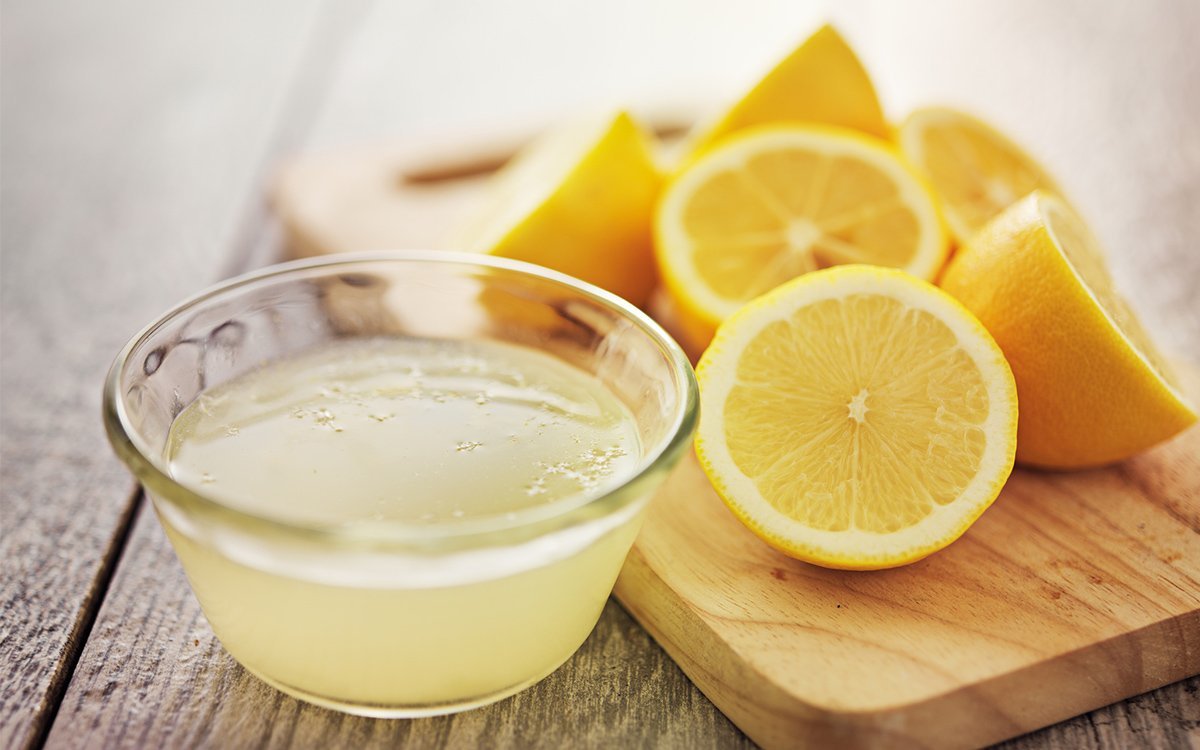Lemon juice is a very important natural medicine which has fallen into obscurity because it does not gleam with the sophistication of modern medicine.
The saying: “Let food be thy medicine, and let medicine be thy food” is often attributed to Hippocrates (although it cannot be found anywhere in Hippocrates’ writings). Hippocrates considered nutrition to be one of a doctor’s primary tools. Moreover, ironically, considering how estranged modern medicine has become from any understanding of the value of therapeutic nutrition, dietary measures are a central focus of the original oath of Hippocrates: “I will apply dietetic and lifestyle measures to help the sick to my best ability and judgment; I will protect them from harm and injustice.”
Lemon juice is one of the most effective and versatile of all the vegetable acids. It is anti-scorbutic, astringent, diaphoretic (stimulates sweating), diuretic, and febrifuge (reduces fever). Aside from its noted anti-scorbutic (prevents scurvy) property, it is potentially useful in cases of fever (including bilious fever and rheumatic fever). Liberal quantities served warm will induce sweating. When added to a warm infusion of whole flax seed or chia seed, and served at bedtime, it may prove an effective remedy for stimulating purging the system of stored toxins via sweating.
The lemon (whole, juice or peel according to the specific symptom) has proven useful in certain cases in the treatment of a wide-variety of symptoms including: blood poisoning; obesity; malaria; tuberculosis; erysipelas (a bacterial skin infection that usually affects the arms, legs, or face, characterized by shiny, red areas, small blisters, and swollen lymph nodes); chilblains (purple red inflammation (which can chap, crack or ulcerate) that occurs when the small blood vessels below the skin are damaged usually due to exposure to cold weather); diphtheria (an infectious disease caused by a bacteria which produces a poison that affects the throat, tonsils, nose and/or skin); dropsy (edema: swelling from excessive accumulation of serous fluid in tissue); la grippe; headaches; gingivitis, stomatitis; inflammation of the tongue; dental plaque; halitosis; sore throat; hoarseness; asthma; common cold; coughs; nausea (including morning sickness; in these cases the lemon juice should be mixed with potassium bicarbonate); heartburn; hiccoughs; biliousness; liver congestion; acute gouty forms of rheumatism; cold fee; sunburn.
The homeopathic symptoms of the remedy Citrus limonum, is prepared from lemon juice. Symptoms for which it may prove useful include: scurvy; inflammation; faintness; weak pulse; hemorrhage; edema; daily headaches; excessive menstruation; stiffness in the joints, particularly the fingers; bruised feeling, particularly in the feet; herpes eruptions; convulsive fits with loss of reason and disposition to be frightened; constipation; diarrhea; rheumatism; antidotes, snakebite and animal poisons. The Citrus limonum symptom picture also includes: cancer pains; pain from cancer of the tongue; inflammation and painful enlargement of the spleen.
Lemon Juice & The Liver
Lemon juice taken first thing in the morning has been long used as a general diuretic, and as part of a weight-loss program (primarily to reduce water-retention). In general, it also exerts a purifying effect upon the body’s fluid organization including the blood and lymphatics.
However, today, I am discussing its use in relation the liver.
Being the organic medium of the etheric body, the liver is the center of the body’s fluid organization. The liver is strongly influenced by the quantity and quality of water imbibed by the individual. The liver is one of the few organs that does not lose water content with aging. Its remarkable regenerating capacity, suggestive of this same attribute of plant life (predominantly etheric organisms), supports the view of it as an etheric, water-oriented organ.
The liver inactivates anti-diuretic hormone (ADH) secreted by the posterior pituitary as well as aldosterone (water-retaining adrenal cortex hormone). The liver is very rich in fluids, has a sponge-like structure and contains barely more solid matter than blood. The blood is 78% water while the liver is 71% water. It’s a very warm organ with a temperature of above 40o C (104o F).
In Chinese medicine, on a non-physical level, the liver embodies the ability to view life and formulate plans and strategies, to develop a vision, the power of imagination and the creative energy that results in growth. Accordingly, liver imbalances, frustration of said abilities as well as consequent disappointment can lead to inflexibility and rigidity when there is excessive dryness; or, when there is excessive heat: irritability, rage, fury, aggression; and, when there is exhaustion and deficiency: sarcasm, cynicism, bitterness, apathy, sluggishness, resignation, depression.
In Chinese medicine, Wind is one of the pernicious environmental influences that play a part in disease. Internal Wind is most often associated with a liver disharmony. Wind is associated with movement, and the liver is responsible for movement of blood and fluids, the transport of nutrients and innumerable chemical transformations. Thus, it’s susceptible to irregularities in movement or Internal Wind. Symptoms of Internal Wind are characterized by disturbed movement such as spasms and cramps.
Traditional Chinese medical theory asserts “the liver rules the flowing and spreading of blood, moving it in all directions in the body.” It is also thought to store and regulate the blood. Accordingly, the liver allows blood to move outward more freely when there is heightened demand, while during periods of inactivity, the blood returns to the liver for storage.
Western physiology has substantiated this storage role. The liver sinusoids can store up to 20% of the entire blood volume. Due to its expandable, compressible nature, large volumes of blood can be stored in its blood vessels. It normally contains about 10% of total blood volume and acts as a blood reservoir in times of excess blood volume, and a blood supplier when blood volume is diminished.
The liver represents the human body’s primary filtration system, converting toxins into waste products, cleansing the blood, and metabolizing nutrients and pharmaceutical drugs. As such it is a fundamental part of the body’s overall regulation, and it’s paramount to keep the environment of the liver cells unobstructed and healthy.
Use of Morning Lemon Juice
While the idea of liver detoxification is over-commercialized, there is no question, that the liver cell environment, like the environment of any other cell population should be supported with nutritive and cleansing-assisting measures. Medical writers dispute the idea that the liver needs to be detoxified because it does not “store” toxins. However, toxins can accumulate in any tissue, due to chronic congestion, inflammation and deposition. It is only logical, that the liver, being the organ most prominently charged with the task of filtering toxins from the tissues, is particularly susceptible to the deposition of toxins.
One of the best, traditional measures used to support healthy liver function is the use of lemon juice, first thing in the morning.
In this reference, the lemon juice should be taken on an empty stomach and it is best to wait at least 30 minutes before eating breakfast.
As always, it is best to use an organic fruit or vegetable over a non-organic one. Currently, there are no GMO lemons on the market, but that may change.
One of the key things to bear in mind is the proportion of lemon juice to water. The greater the dilution of the lemon juice, the milder its impact upon the liver.
If you are very sensitive and concerned that stimulating the liver may cause unpleasant detox symptoms, begin with a dilution of the juice of 1 lemon : 24 oz. pure water.
However, in cases, where stronger action within the liver is desired, the dilution is reduced accordingly. The strongest lemon juice concentration I use is the juice of 1 lemon : 12 oz. water.
After drinking the lemon water, wait a few minutes and begin drinking pure water. I drink a minimum of 32 oz. of pure water the first thing each morning. I used distilled water.
Drinking Lemon Water in the Morning & Relevant Homeopathic Cell Salts
When using early morning lemon juice in water for the purposes of flushing the urinary tract, the relevant cell salts are: Kali. mur., Kali phos., and Silicea.
Option: Add a small amount of cayenne pepper to the lemon water.
When using early morning lemon juice in water for the purposes of stimulating liver cleansing, the relevant cell salts are: Calc. sulph., Kali. mur., and Nat. sulph.
Option: Wait 30 minutes and have a cup of warm ginger root tea.
The 3 cell salts for each of these can be taken as follows:
Take 1 just before drinking the diluted lemon juice. Take a second while drinking it. Take the third, a few minutes after finishing.







